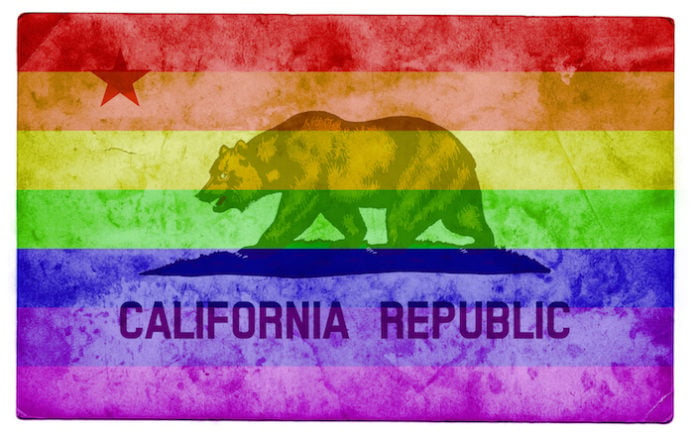
California may soon apologize for the state’s injustice against and persecution of the LGBTQ community.
Assembly Concurrent Resolution 172, which was passed by the Assembly earlier this month and awaits a vote in the Senate, would apologize for the state’s past discriminatory laws that punished and persecuted queer people. Photo: LPETTET/iStock
California may soon apologize for the state’s injustices against and persecution of the LGBTQ community.
Assembly Concurrent Resolution 172, which was passed by the Assembly earlier this month and awaits a vote in the Senate, would apologize for the state’s discriminatory laws that punished and prosecuted queer people.
QUEER COMMUNITY FACED INJUSTICES
“To say the LGBT community has been faced with acts of injustice would be an understatement,” the resolution says. “Throughout California’s history, the LGBT community faced persecution and oppression, which forced them to live in fear. It’s only right that we recognize the painful hardship suffered by the LGBT community throughout our state’s history. No one should live in fear of persecution or discrimination for being themselves.”
Assemblyman Evan Low (D-Cupertino), who identifies as gay, authored the bill, which is supported by Equality California, the Human Rights Campaign, the ACLU, and the Los Angeles LGBT Center.
“California has a long history of enacting legislation that discriminated against LGBT individuals,” Low said in a statement. “This will not undo the decades of persecution and oppression that our community has faced, but it is important to recognize these injustices so that we as a state can move forward and lead with love.”
Low also has authored a bill that would classify conversion therapy as consumer fraud.
DISCRIMINATION AGAINST QUEER PEOPLE
Historically, California and other states in the union charged people with crimes based on their sexuality and gender identity. These laws served as a basis to criminalize homosexuality and legitimize discrimination against queer people.
Also, local indecency statutes gave law enforcement permission to harass and arrest people who were considered deviant or gender-bending.
Here are some of California’s past discriminatory laws that were used to persecute the queer community.
- As early as 1850, a common law statute with historical roots in English law was established to make sodomy illegal and set the penalty at five years to life.
- In 1872, California criminalized sodomy.
- From the late 1800s onward, California jurisdictions also widely employed vagrancy, disorderly conduct, and indecent exposure laws to prosecute same-sex intimacy and behavior outside of gender norms.
- Public indecency statutes and “unlawful masquerade” laws were applied to permit police to harass and sometimes arrest people who were considered deviant or gender-bending.
- In 1909, the state law allowed people who were convicted and imprisoned for being “moral or sexual perverts,” including people convicted of sodomy and oral sex acts, to be sterilized in state hospitals.
- In 1915, California added oral sex between same-sex couples, punishable up to 15 years in state prison.
- In 1921, a statute banned “any act … which openly outrages public decency.”
- In 1939, California enacted a “sexual psychopath” law, which was used to commit numerous LGBT people for involuntary psychiatric incarceration and gruesome medical treatments.
- In 1947, California enacted a statewide registration for sex offenders, exposing LGBT people convicted of sex offenses to public shaming and harassment by police.
- In 1977, California law defined marriage as “between one man and one woman.” In March 2000, Proposition 22 was enacted by California voters to prevent marriage between same-sex couples. Although Proposition 22 was struck down by the California Supreme Court in 2008, the ruling was superseded when Prop. 8 reinstated the ban that same year. Same-sex marriages became legal in 2013.
